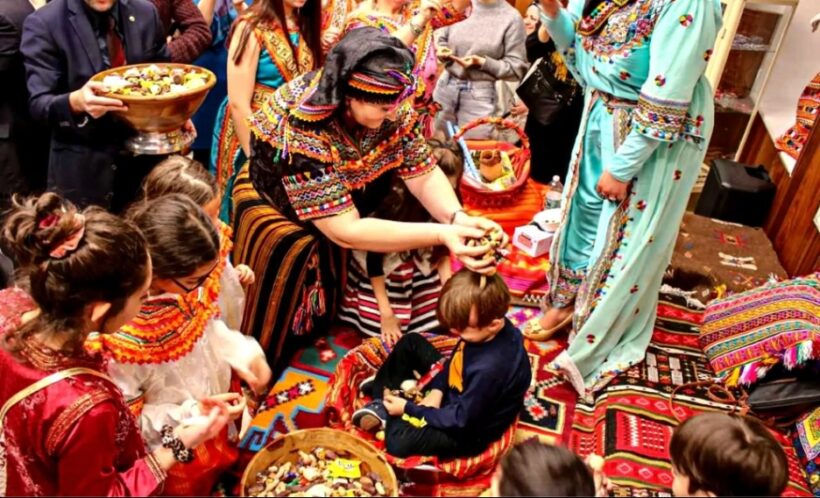The Berber New Year (Yennayer) is celebrated by the «Amazigh people» in a spirit of joy and sharing in different regions of North Africa but also in the Canary Islands of the European continent and in sub-Saharan countries which remain attached to this centuries-old tradition and Berber culture.
The word Yennayer is composed of «yen», which means «first», and «ayer» (or ayyur), which means «month». It corresponds to the first day of the agrarian calendar used by the Berbers for several centuries, itself corresponding to the Julian calendar adopted in North Africa in ancient Rome and offbeat by thirteen days compared to the Gregorian calendar. The first day of this calendar is chosen to correspond to the victory of Sheshonq I (Cacnaq) over Pharaoh Ramesses III and his enthronement as Pharaoh of Egypt. He is the founder of the XXIIe dynasty which reigned in Egypt until 715 BC.
Yennayer remains a special moment for families around a good meal and also an opportunity to relive the history of their ancestors and their glories.
Like every year, the Amazigh New Year is an opportunity for Islamists to launch their campaign against the celebration of Yennayer. Several pages affiliated with the Salafist Islamist movement, particularly in Morocco and Algeria, call for not celebrating the Amazigh New Year by declaring this celebration as a sin and limiting themselves to only Muslim celebrations.






